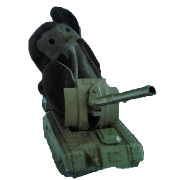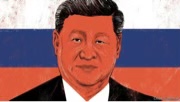|
Whirling posted:I wanna learn some more stuff about how incompetent the Nazis were. I've seen a lot about the evil poo poo they did, but I want to see more stories like them making a bunch of handcrafted tanks only to have them destroyed by some Soviet tank made in a tractor factory. there's a famous post in the milhist thread in A/T about nazi uniforms being a boondoggle. let me see if i can find it.
|
|
|
|

|
| # ? May 23, 2024 09:53 |
|
https://forums.somethingawful.com/showthread.php?noseen=0&threadid=3950461&pagenumber=104&perpage=40#post513996717 https://forums.somethingawful.com/showthread.php?noseen=0&threadid=3950461&pagenumber=412&perpage=40#post525005350 There you go. Feel free to ask for more in the milhist thread.
|
|
|
|
samcarsten posted:the purges? the NKVD? not killing Beria immediately? Maybe the purges were unnecessary, maybe not. Nobody overthrew Stalin when it would have been disastrous for the world. Do you think you can run a country with the entire western world against you without a secret police? Who else was going to execute those Polish fascists?
|
|
|
|
Whirling posted:I wanna learn some more stuff about how incompetent the Nazis were. I've seen a lot about the evil poo poo they did, but I want to see more stories like them making a bunch of handcrafted tanks only to have them destroyed by some Soviet tank made in a tractor factory. If you think you’d enjoy reading about how the nazis bungled the entire economy and how the whole Hitler gave people jobs and prosperity thing is a myth, read Adam Tooze’s Wages of Destruction. It’s one of my favorite Schadenfreude books.
|
|
|
|
Whirling posted:I wanna learn some more stuff about how incompetent the Nazis were. I've seen a lot about the evil poo poo they did, but I want to see more stories like them making a bunch of handcrafted tanks only to have them destroyed by some Soviet tank made in a tractor factory. Read about nazi uniform production processes. So many man-hours spent on pockets that weren’t even used. Eh gently caress there was another page and I am beaten. Ok well you can also read about German farming practices. All small-scale production with individual farmers owning small bits of land here and there in a big patchwork. Directly influenced nazi ideology and vision of their idealized rural society. Was also inefficient at producing the required output as all hell. Orange Devil has issued a correction as of 09:53 on Jun 25, 2023 |
|
|
|
Weka posted:More seriously, what was bad about Stalin? Huge ratcheting back of the promise of social freedom promised in the early USSR back towards social conservatism, especially in things like art
|
|
|
|
MikeCrotch posted:Huge ratcheting back of the promise of social freedom promised in the early USSR back towards social conservatism, especially in things like art Was he wrong to do so? Things like this seem bad until you consider the USSR was under siege it's entire existence. Now obviously Stalin wasn't perfect but I think he was pretty good.
|
|
|
|
lol
|
|
|
|
Weka posted:Was he wrong to do so? Things like this seem bad until you consider the USSR was under siege it's entire existence. How cracking down on sexual and gender minorities helped with the siege?
|
|
|
|
That was around the time they liberalized policy towards the church, wasn't it, prior to ww2? Part of a broad appeal to conservative elements in an effort to prevent collaboration with the nazis.
|
|
|
|
Weka posted:Was he wrong to do so? Things like this seem bad until you consider the USSR was under siege it's entire existence. https://youtu.be/wF0JdAim6Pc
|
|
|
|
issuing correction on a previous post of mine, regarding Stalin. you do not, under any circumstances, "gotta hand it to them"
birdstrike has issued a correction as of 10:57 on Jun 26, 2023 |
|
|
|
Weka posted:Maybe the purges were unnecessary, maybe not. Nobody overthrew Stalin when it would have been disastrous for the world. lol this is the dumbest poo poo I ever read here the purges hugely weakened the USSR on the eve of the Nazi invasion, there were no actual plots against Stalin to find or root out, the entire thing was 100% unnecessary and from the point of view of state capacity counterproductive, it just took millions of people pretty much at random and arbitrarily killed them or removed them from the productive part of the economy into the grossly unproductive, wasteful, and deadly forced labour system, and in the process it brutalized Soviet society and created a time bomb of intergenerational discontent that contributed enormously to the downfall of the USSR several decades later Beevor being a bad historian doesn't mean Stalin was actually good
|
|
|
|
Weka posted:That was around the time they liberalized policy towards the church, wasn't it, prior to ww2? Part of a broad appeal to conservative elements in an effort to prevent collaboration with the nazis. Homosexuality was recriminalised in 1934 during the "five year plan of atheism" ContinuityNewTimes has issued a correction as of 11:48 on Jun 26, 2023 |
|
|
|
vyelkin posted:Beevor being a bad historian doesn't mean Stalin was actually good All correct and I also feel like this is a specific problem with a lot of online history discourse: you can understand something and place it in context without saying it was Actually Good. Stalin didn't just press a big red Be Evil button for no reason, there were reasons he did what he did, it's not some sort of inevitable consequence of socialism (and the worst you can say about him was that he was as bad as the tsars); but that doesn't mean he literally did nothing wrong
|
|
|
|
vyelkin posted:lol this is the dumbest poo poo I ever read here
|
|
|
|
Weka posted:Was he wrong to do so? Things like this seem bad until you consider the USSR was under siege it's entire existence. Still seems bad after considering it tbh
|
|
|
|
Take the plunge! Okay! posted:If you think you’d enjoy reading about how the nazis bungled the entire economy and how the whole Hitler gave people jobs and prosperity thing is a myth, read Adam Tooze’s Wages of Destruction. It’s one of my favorite Schadenfreude books. It is very strange that American education doesn't really ever get into these things of why the Nazis sucked; we at least teach about the Holocaust, but there's nothing about what I'm reading in this book (thank you for the recommend) where, in the brief peacetime period of Nazi Germany, wages are stagnant, unions are basically banned, and all the economy is being geared towards massive rearmament rather than the benefit of the citizens. I guess it rings a little too closely to how our US government does nothing but spend on the military?
|
|
|
Whirling posted:It is very strange that American education doesn't really ever get into these things of why the Nazis sucked; we at least teach about the Holocaust, but there's nothing about what I'm reading in this book (thank you for the recommend) where, in the brief peacetime period of Nazi Germany, wages are stagnant, unions are basically banned, and all the economy is being geared towards massive rearmament rather than the benefit of the citizens. I guess it rings a little too closely to how our US government does nothing but spend on the military? A lot of it stems from self-serving post-war memoirs that explain away Allied incompetence as Nazi brilliance, something the Nazi generals were happy to incorporate into their own post-war memoirs to bolster their own reputations. Of course no one really wants to interrogate why we didn't step in sooner than we did, but there's a whole lotta bad decisions being made by the Allies well after the sides came down as they did.
|
|
|
|
|
I remember the story in there where Nazi Germany permitted an official May Day celebration for the labor unions and then the next day arrested everyone who organized it
|
|
|
|
Whirling posted:It is very strange that American education doesn't really ever get into these things of why the Nazis sucked; we at least teach about the Holocaust, but there's nothing about what I'm reading in this book (thank you for the recommend) where, in the brief peacetime period of Nazi Germany, wages are stagnant, unions are basically banned, and all the economy is being geared towards massive rearmament rather than the benefit of the citizens. I guess it rings a little too closely to how our US government does nothing but spend on the military? Massive rearmament was one side of it, but parts of the citizenry were also being bought off by confiscating everything German Jews owned and firing them from their jobs and redistributing their belongings and jobs to "Aryan" Germans, which made it seem like "citizens" were benefiting from the Nazi economy because they had redefined who counted as a citizen and then redistributed existing wealth to them, like a racist shell game.
|
|
|
|
vyelkin posted:Massive rearmament was one side of it, but parts of the citizenry were also being bought off by confiscating everything German Jews owned and firing them from their jobs and redistributing their belongings and jobs to "Aryan" Germans, which made it seem like "citizens" were benefiting from the Nazi economy because they had redefined who counted as a citizen and then redistributed existing wealth to them, like a racist shell game. Socialism for the Aryan Nation, hence National Socialism. I'm making a joke but wouldn't be surprised if this was an actual line of thought.
|
|
|
|
mycomancy posted:Socialism for the Aryan Nation, hence National Socialism.
|
|
|
|
vyelkin posted:lol this is the dumbest poo poo I ever read here How do you know there were no plots? Do coup plotters typically leave a large paper trail? The evidence of absence is not the absence of evidence. My point is not that Stalin correctly identified plotters, but that he wiped out almost any possibility of a challenge to his rule. Perhaps they weren't specifically plotting against his leadership but Trots and others were doing things like criticizing agricultural policies, which certainly had a very real human cost but I would argue were necessary to defeat the nazis. Then there's the campaigns targeting nationalist groups, which accounted for maybe a third iirc of executions. Do you think none of these groups were plotting against the state? Regardless, despite his many very real flaws here is a list of five things Stalin did that outweigh all of them put together. 1) killed one million nazis 2) killed one million nazis 3) killed one million nazis 4) killed one million nazis 5) stopped like a dozen genocides
|
|
|
|
Stalin correctly predicted 12 of the 7 coups being plotted against him.
|
|
|
|
|
this started off with "what's so bad about Stalin anyway" and ended up with "okay but some of them were bad people right?"
|
|
|
|
Weka posted:How do you know there were no plots? Do coup plotters typically leave a large paper trail? The evidence of absence is not the absence of evidence. There has never been any evidence uncovered of an actual plot threatening Stalin's position at the head of the USSR except for confessions obtained under torture. No one should approach history by looking at the guys in charge saying a bad thing was going to happen but they stopped it by killing all the bad guys and just taking their word for it because there's no evidence either way, and if your evidence that someone is plotting to overthrow the government is that they disagree on agricultural policy then I'm not sure we'll ever see eye to eye about what counts as a real threat against the state that demands eradication through mass murder. The campaigns against "nationalist groups" were in the overwhelming majority of cases directed against Soviet citizens who showed no signs of disloyalty but who happened to have the wrong ethnicity. "Do you really think none of these groups were plotting against the state?" is horseshit because that frames the situation as if a single person harbouring anti-Soviet thoughts justifies murdering and unjustly imprisoning several million people because they had the wrong last name or their cousin attended a Trotskyist meeting once or they had the misfortune of being a population caught between rival states, like the deportation of the entire Korean population of the Soviet Far East because the leadership worried that their presence there would make Japanese espionage easier. It's like saying the Trail of Tears was justified because the Cherokee might have raided some American homesteads - hey, there's no evidence they weren't going to! Yes, the USSR under Stalin defeated the Nazis and the country as a whole deserves all the credit for that. Much of it seems to have been in spite of Stalin's incompetent decisions making it harder for the rest of the country, not because of his brilliant leadership and foresight. For every decision that you can say likely helped the war effort in comparison to a counterfactual history, like prioritizing crash industrialization or developing important military-industrial sites in the far north and east of the Urals, there's a decision that without a doubt hurt the war effort, like building much of that industry along existing patterns of economic development that located them within striking distance of Nazi troops, or eviscerating the officer corps of the Red Army in the years immediately before the war leaving them unprepared for the invasion when it happened, or insisting on counterattacks that made no military sense. Saying "the USSR won and Stalin was in charge of the USSR therefore he gets all the credit" is Great Man bullshit, especially when if you want to dig into the fine grains of what decisions Stalin actually made, the orders he gave seem to have hurt just as often as they helped. From a historical perspective I also have to completely disagree with the idea that a leader winning a just war inherently justified whatever actions they took before and during that war - by that measure we should swear off criticizing FDR for rounding up Japanese-Americans and putting them in concentration camps, because he was fighting the Nazis and the ends justify the means.
|
|
|
|
Weka posted:How do you know there were no plots? Do coup plotters typically leave a large paper trail? The evidence of absence is not the absence of evidence. dude trust me there were real plots against stalin so we had to delete our officer corps
|
|
|
|
Sure the means killed and tortured some folks, but you can't deny the ends. Stalin remained in power.
|
|
|
|
He was really stalin' those coup attempts with all those purges.
|
|
|
|
there were never actually any serious plots by anyone of note but iirc there is evidence of Trotsky keeping in contact with a few people still in the USSR which probably served as the origin point of stalin’s paranoia wrt the purges
|
|
|
|
Raskolnikov38 posted:there were never actually any serious plots by anyone of note but iirc there is evidence of Trotsky keeping in contact with a few people still in the USSR which probably served as the origin point of stalin’s paranoia wrt the purges once again, the friendless loser cannot stand someone else having friends.
|
|
|
|
stalin was on that sigma grindset
|
|
|
|
mycomancy posted:Socialism for the Aryan Nation, hence National Socialism. Socialism simply means "state does things". And nazi state certainly did things.
|
|
|
|
How did Winter war help Soviet Union against the capitalist siege?
|
|
|
|
quote:The period after the Finnish Civil War to the early 1930s was a politically unstable time in Finland because of the continued rivalry between the conservatives and the socialists. The Communist Party of Finland was declared illegal in 1931, and the nationalist Lapua Movement organised anticommunist violence, which culminated in a failed coup attempt in 1932. The successor of the Lapua Movement, the Patriotic People's Movement, had a minor presence in national politics and never had more than 14 seats of the 200 in the Finnish Parliament.[45] By the late 1930s, the export-oriented Finnish economy was growing and the nation's extreme political movements had diminished.[46]
|
|
|
|
i think stalin saw all possible timelines and knew the one where the good guys win is one of the ones where he’s in charge. like dr. strange
|
|
|
|
the most compelling reason i've read for the officer purges is that the red army remained somewhat opaque to the Party leadership and that armies in general are kind of reactionary institutions to begin with. you have this big power base of often career military guys, many with tzarist backgrounds and many of whom have suspect communistic fervour, over which you don't really have control. add to that that the guy who really mastered the institution was trotsky, whom you've chased halfway across the world, and you have ample grounds for paranoia. additionally, by necessity a lot of these officers maintained contacts with foreign officer classes to stay up-to-date on recent developments in doctrine, including in some cases (such as tukhachevsky) that of nazi germany. there's a lot of things which would concern a rational person, and the bolshevik way of handling worry was often rather proactive. this obviously doesn't justify the brutality and arbitrariness of the purges, but it does imo make sense that an organisation like the communist party of the soviet union under stalin would be deeply worried about the army starting something and want to take measures. the political officers didn't really cut it, and ideally you don't want a separate officer class at all because they're inherently reactionary. so they made the point in an extremely ugly way.
|
|
|
|
weren't a lot of the purges essentially bottom-up as well, as in not orchestrated by Stalin but rather a really brutal way to solve disputes and grudges at local levels by party functionaries etc? and then also being ramped up by people like Yezhov who used it as a way to advance their own position. Stalin directed and signed off on a lot of it but iirc he was also being egged on and hyped up by his subordinates, etc. a perfect storm of different motives and fuckups and paranoia and cruelty
|
|
|
|

|
| # ? May 23, 2024 09:53 |
|
John Charity Spring posted:weren't a lot of the purges essentially bottom-up as well, as in not orchestrated by Stalin but rather a really brutal way to solve disputes and grudges at local levels by party functionaries etc? and then also being ramped up by people like Yezhov who used it as a way to advance their own position. Stalin directed and signed off on a lot of it but iirc he was also being egged on and hyped up by his subordinates, etc. a perfect storm of different motives and fuckups and paranoia and cruelty im not sure. sounds plausible but im not well read on this topic
|
|
|


































